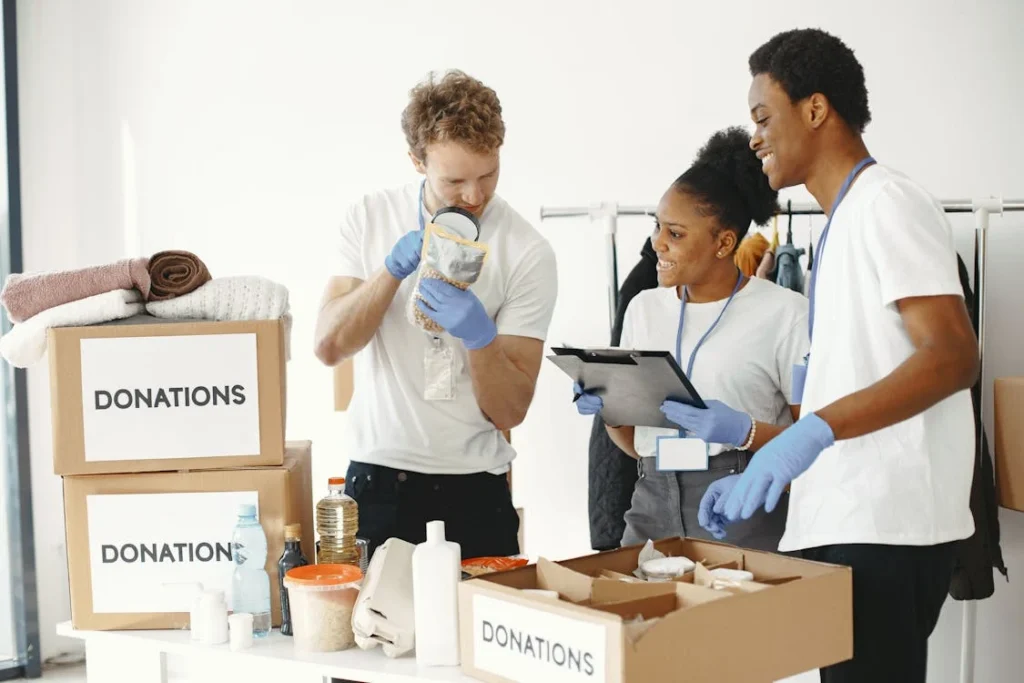Persons with disabilities in India face many challenges, from accessibility barriers to discrimination in education, employment, and healthcare. While the government has introduced laws and policies to protect their rights, implementation is often slow and inadequate. This is where non-governmental organizations (NGOs) play a crucial role.
NGOs work tirelessly to bridge the gap between policies and real-world change. They advocate for disability rights, provide direct support to individuals, and push for better implementation of government schemes. Their work goes beyond legal activism; they help children with disabilities get an education, assist job seekers in finding employment, and provide rehabilitation services for those in need.
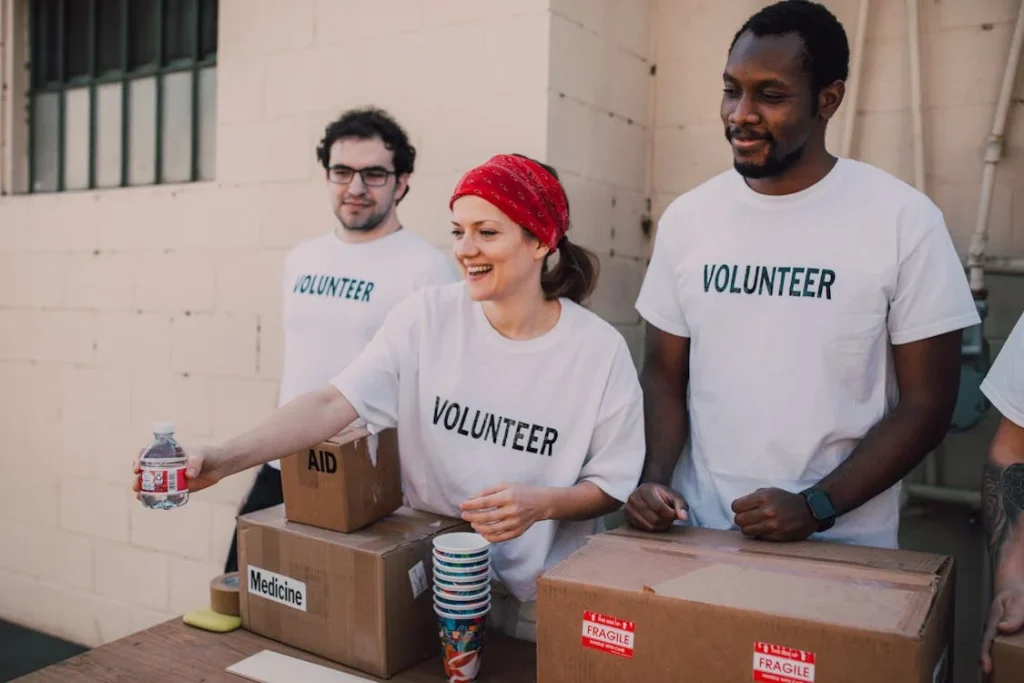
How NGOs Advocate for Disability Rights in India
Raising Awareness and Changing Public Perception
One of the biggest challenges persons with disabilities face is societal stigma. Many people still see disability as a limitation rather than a different way of living.
NGOs work to change this mindset by conducting awareness campaigns that educate the public about disability rights, inclusion, and accessibility.
These campaigns take place in schools, workplaces, and communities to help people understand that persons with disabilities deserve equal opportunities and respect.
Media plays a crucial role in shaping public opinion, and NGOs actively use television, newspapers, and social media to highlight the struggles and achievements of persons with disabilities.
By sharing real-life stories of individuals who have overcome barriers, they inspire society to be more accepting and supportive. Campaigns such as “Accessible India” and “Disability is Not Inability” have helped bring disability rights into mainstream discussions.
Pushing for Stronger Laws and Policies
While India has several laws protecting disability rights, they are not always enforced effectively. NGOs play a key role in holding the government accountable and ensuring that these laws are implemented properly.
They actively lobby for policy changes, participate in government committees, and provide expert recommendations on how to improve disability laws.
For instance, the passing of the Rights of Persons with Disabilities Act, 2016 was a major victory for disability rights activists. NGOs played a significant role in shaping this law by providing research, conducting surveys, and pushing for stronger legal protections.
They continue to monitor its implementation, making sure that schools, workplaces, and public spaces comply with accessibility requirements.
Many NGOs also work on legal advocacy, providing free legal assistance to persons with disabilities who face discrimination. They help individuals file complaints, challenge unfair policies, and fight for their rights in court.
Through persistent legal efforts, NGOs have helped improve access to education, employment reservations, and social security benefits for persons with disabilities.
Providing Direct Support and Rehabilitation Services
Beyond advocacy, NGOs offer hands-on support to individuals with disabilities, helping them live more independent and fulfilling lives. Many organizations provide mobility aids such as prosthetic limbs, wheelchairs, and hearing aids at little or no cost.
They also run rehabilitation centers where individuals receive physiotherapy, speech therapy, and vocational training.
For children with disabilities, education remains a major challenge. Many NGOs operate special schools or work with mainstream schools to provide inclusive education.
They train teachers, develop learning materials in accessible formats, and ensure that students with disabilities receive the necessary support to succeed in their studies.
In the employment sector, NGOs assist job seekers with disabilities by providing skill development programs, career counseling, and job placement services.
They work closely with companies to create inclusive workplaces and encourage businesses to hire persons with disabilities. Programs like “Livelihood for All” have successfully helped thousands of individuals find meaningful jobs and financial independence.
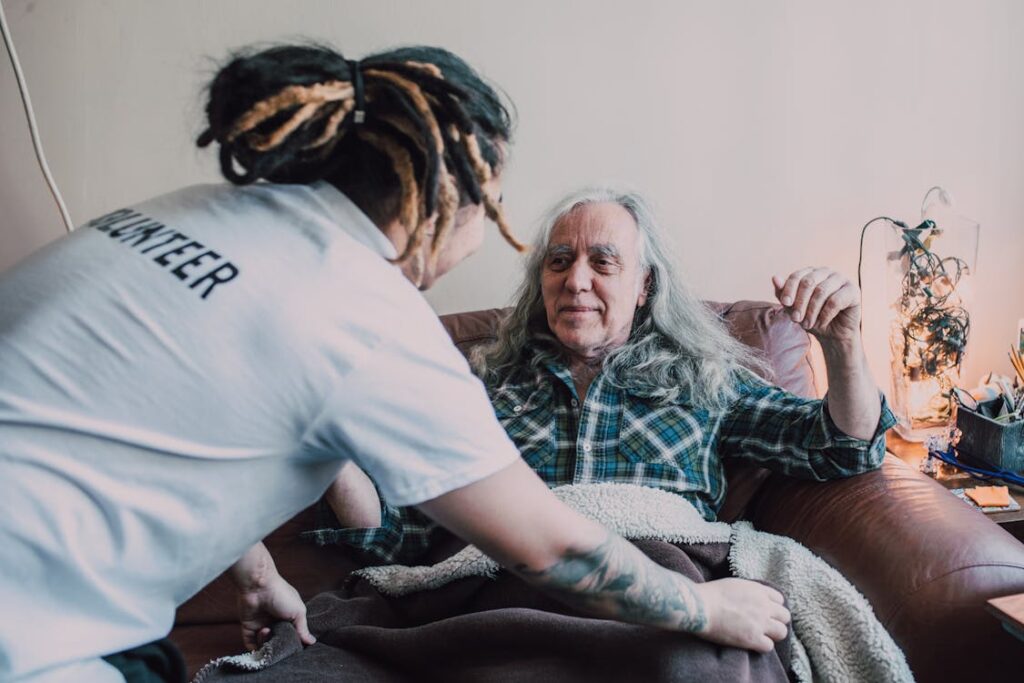
How NGOs Improve Accessibility and Independent Living for Persons with Disabilities
Making Public Spaces and Transportation More Accessible
One of the biggest challenges persons with disabilities face in India is the lack of accessible infrastructure. Many public buildings, transport systems, and even government offices are not designed to accommodate individuals with mobility impairments.
NGOs play a crucial role in advocating for and implementing accessibility improvements in cities and towns across the country.
Organizations focused on accessibility work with local governments to ensure that public places like railway stations, airports, and bus terminals have ramps, elevators, and tactile paths for visually impaired individuals.
They conduct accessibility audits of schools, workplaces, and hospitals, pointing out areas that need improvement and pushing for compliance with accessibility laws.
Transportation is another major concern. Many buses and trains in India still do not have ramps or reserved spaces for wheelchair users, making it difficult for persons with disabilities to commute independently.
NGOs collaborate with transport authorities to introduce accessible buses with low floors, install ramps at metro stations, and train public transport staff to assist passengers with disabilities.
Promoting Assistive Technology and Digital Inclusion
Technology has the power to break down barriers for persons with disabilities, but it needs to be widely available and user-friendly. NGOs working in the field of assistive technology ensure that individuals with disabilities have access to the tools they need to lead independent lives.
For visually impaired individuals, NGOs provide screen readers, digital Braille devices, and voice-enabled software that help them use computers and mobile phones.
Organizations like National Association for the Blind work to make digital content more accessible by converting textbooks and other materials into Braille, audio, or large-print formats.
For persons with hearing impairments, NGOs promote the use of sign language interpreters in education, healthcare, and workplaces. They work with technology developers to introduce real-time captioning services and hearing aids at subsidized costs.
Digital accessibility is another focus area. Many government websites, banking portals, and e-learning platforms are not designed to be accessible for persons with disabilities.
NGOs campaign for better digital inclusion, ensuring that websites and mobile apps follow global accessibility standards so that individuals with disabilities can access essential online services without difficulty.
Encouraging Independent Living and Social Inclusion
Living with a disability does not mean a person should depend entirely on others. NGOs play a crucial role in helping individuals with disabilities lead independent lives by providing life skills training, financial support, and community programs.
Many NGOs run independent living centers where persons with disabilities can learn essential skills such as managing finances, using assistive technology, and handling daily tasks like cooking and transportation.
These centers empower individuals to live without constant reliance on caregivers.
Social inclusion is another area where NGOs make a significant impact. Many persons with disabilities face isolation due to societal stigma, limited accessibility, and lack of opportunities to participate in community activities.
NGOs organize social events, cultural programs, and sports activities specifically designed to include persons with disabilities.
Programs like Paralympic Training Camps and Accessible Tourism Initiatives ensure that persons with disabilities can engage in recreational and sporting activities just like everyone else.
By improving accessibility and promoting independent living, NGOs help persons with disabilities become active participants in society rather than being confined to their homes due to a lack of support.
These efforts bring about long-term social change, making inclusion a reality rather than just a policy goal.
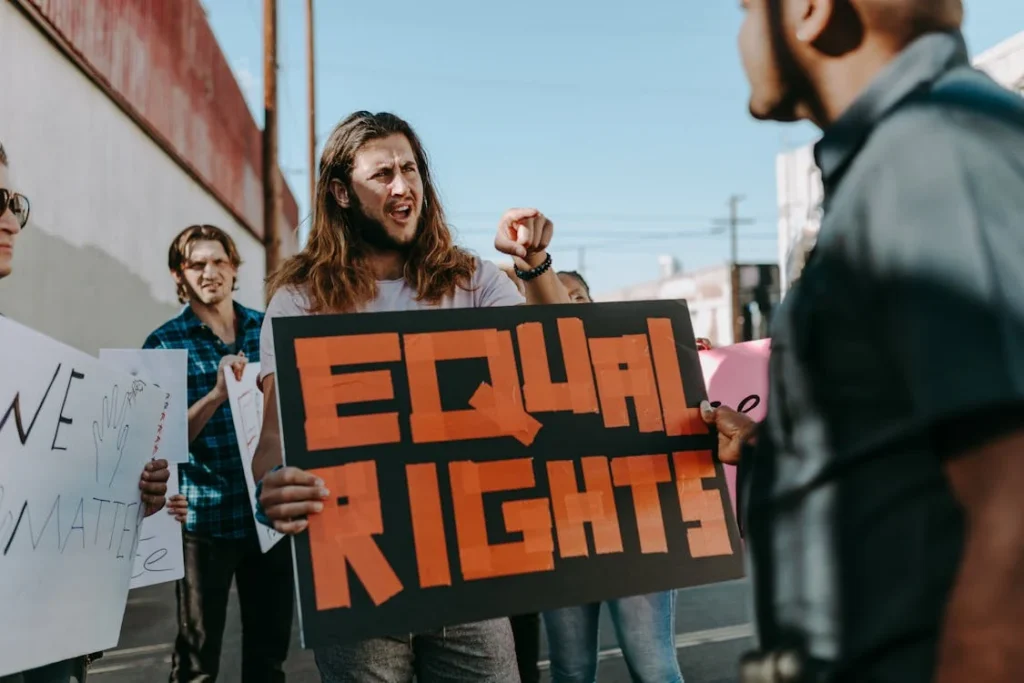
The Impact of NGOs on Policy Changes and Government Collaboration
Working with the Government to Strengthen Disability Rights
NGOs play a crucial role in shaping and improving disability rights policies by collaborating with the government. While laws like the Rights of Persons with Disabilities (RPWD) Act, 2016 provide a legal framework, it is often NGOs that push for their effective implementation.
They provide research, real-world case studies, and expert recommendations to policymakers, ensuring that new laws address the actual needs of persons with disabilities.
Many government committees and advisory boards include representatives from disability rights organizations.
These NGOs provide valuable insights into areas that need urgent reform, such as better enforcement of employment reservations, improved accessibility standards, and stronger social welfare schemes.
By acting as a bridge between persons with disabilities and government agencies, NGOs help ensure that policies are not just theoretical but lead to real-world improvements.
In some cases, NGOs have successfully influenced major policy changes. For example, when the RPWD Act was being drafted, disability rights organizations played a key role in expanding the definition of disability from seven categories to 21, ensuring that more individuals could benefit from legal protections.
Similarly, campaigns led by NGOs have resulted in increased budget allocations for assistive technology and inclusive education programs.
Holding Authorities Accountable
One of the most important roles NGOs play is holding government bodies accountable for their commitments to disability rights.
While laws and policies exist, enforcement is often weak, and many persons with disabilities do not receive the benefits they are entitled to. NGOs act as watchdogs, ensuring that government promises are fulfilled.
They conduct independent audits of public infrastructure, education institutions, and workplaces to check whether they comply with accessibility standards.
If violations are found, NGOs file petitions, submit complaints to regulatory bodies, and even take legal action when necessary.
Their activism has led to the construction of ramps in public buildings, the introduction of disability-friendly government examination centers, and the implementation of workplace accommodations for disabled employees.
Through public interest litigation (PIL), NGOs have also challenged discriminatory practices and fought for the rights of persons with disabilities in court.
Legal battles led by disability rights organizations have resulted in landmark judgments, such as mandating job reservations in the private sector and ensuring that disabled candidates receive extra time in competitive exams.
Filling Gaps in Government Services
In many cases, NGOs step in to provide essential services where the government falls short. While government schemes exist for free prosthetics, hearing aids, and disability pensions, bureaucratic delays often make it difficult for beneficiaries to access these services.
NGOs help by streamlining the process, assisting with paperwork, and ensuring that individuals receive their entitlements without unnecessary obstacles.
For example, some NGOs operate mobile healthcare units that provide medical check-ups, rehabilitation therapy, and assistive devices in rural areas where government healthcare services are limited.
Others run vocational training centers, teaching practical skills that help persons with disabilities secure employment or start their own businesses.
Collaboration between NGOs and government agencies is essential for improving disability rights in India. By working together, they can ensure that policies translate into meaningful change, providing persons with disabilities with the support and opportunities they deserve.
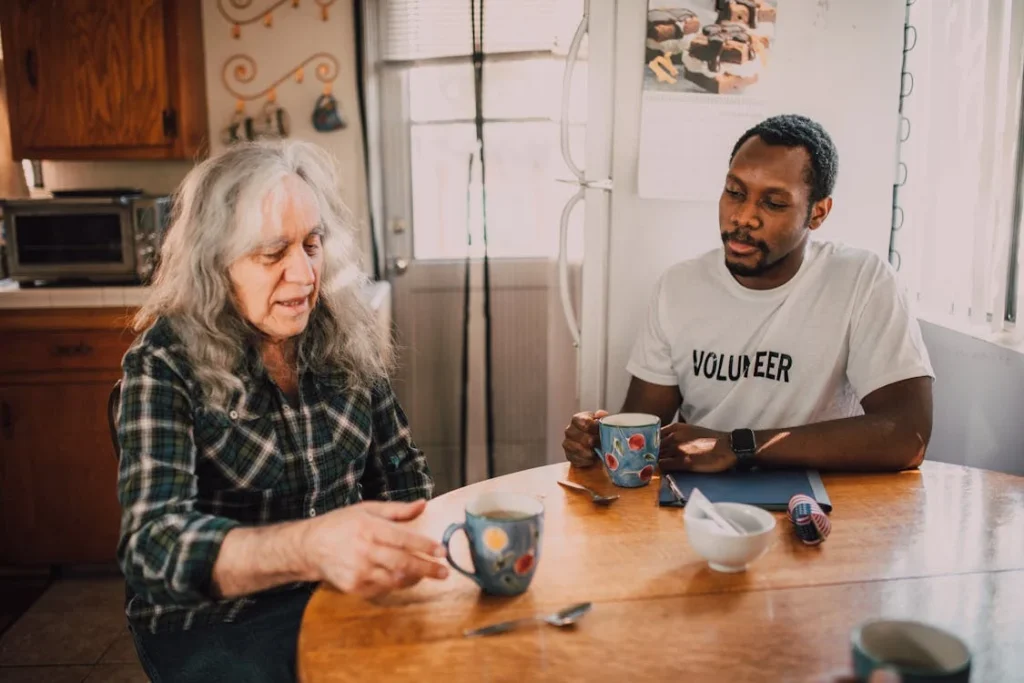
The Role of NGOs in Mental Health and Psychological Support for Persons with Disabilities
Addressing Mental Health Challenges in the Disability Community
While much of the focus on disability rights in India revolves around physical accessibility, education, and employment, mental health remains an often-overlooked aspect.
Many persons with disabilities experience psychological distress due to social stigma, discrimination, and a lack of opportunities. Feelings of isolation, anxiety, and depression are common, especially among those who struggle with mobility or communication barriers.
NGOs are increasingly recognizing the importance of mental health support and are working to fill this critical gap.
Living with a disability in a society that is still developing inclusive policies can be emotionally challenging. Many individuals face exclusion from social activities, difficulty in forming relationships, and a constant struggle for acceptance.
For children with disabilities, bullying in schools and lack of understanding from peers can lead to low self-esteem. Adults with disabilities often experience workplace discrimination or a lack of financial independence, leading to stress and frustration.
Counseling and Psychological Support Programs
To address these challenges, several NGOs have launched mental health programs specifically tailored for persons with disabilities. They offer free or affordable counseling services, group therapy sessions, and one-on-one psychological support.
These sessions help individuals cope with emotional struggles, build confidence, and develop resilience in facing societal barriers.
Some organizations provide therapy sessions in accessible formats, such as sign language-based counseling for persons with hearing impairments or online counseling for individuals with mobility challenges.
Peer support groups, where persons with disabilities share experiences and support one another, have also proven to be highly effective in reducing isolation.
Family Support and Caregiver Training
Mental health support is not just essential for persons with disabilities but also for their families and caregivers. Many parents of children with disabilities experience stress due to concerns about their child’s future, societal stigma, and financial pressures.
NGOs run counseling and training programs for parents to help them navigate these challenges with a positive approach.
Caregivers, including family members and professional attendants, also face emotional and physical exhaustion.
NGOs conduct stress management workshops, self-care training, and awareness programs to help caregivers maintain their own well-being while providing the best possible support to persons with disabilities.
Advocacy for Mental Health Inclusion in Disability Policies
One of the key areas where NGOs are making a difference is in advocating for the inclusion of mental health services within broader disability policies.
While conditions such as autism, intellectual disabilities, and psychosocial disabilities are recognized under the Rights of Persons with Disabilities Act, 2016, mental health services for persons with disabilities remain underdeveloped.
NGOs are pushing for better integration of mental health support in government schemes, ensuring that therapy, counseling, and psychiatric services are accessible and affordable for persons with disabilities.
They also work to raise awareness among policymakers about the need for holistic rehabilitation programs that address both physical and mental well-being.
The Need for More Inclusive Mental Health Infrastructure
Despite growing efforts, India still lacks widespread mental health services tailored for persons with disabilities. Many mental health professionals are not trained to work with disabled individuals, leading to a lack of specialized care.
NGOs are working to bridge this gap by developing training modules for psychologists, psychiatrists, and counselors to equip them with the skills needed to provide effective support for persons with disabilities.
By integrating mental health into the larger conversation on disability rights, NGOs are ensuring that persons with disabilities receive the emotional and psychological support they need to thrive.
The path to true inclusion is not just about physical accessibility and legal protections—it also requires a focus on mental well-being, self-confidence, and emotional resilience.
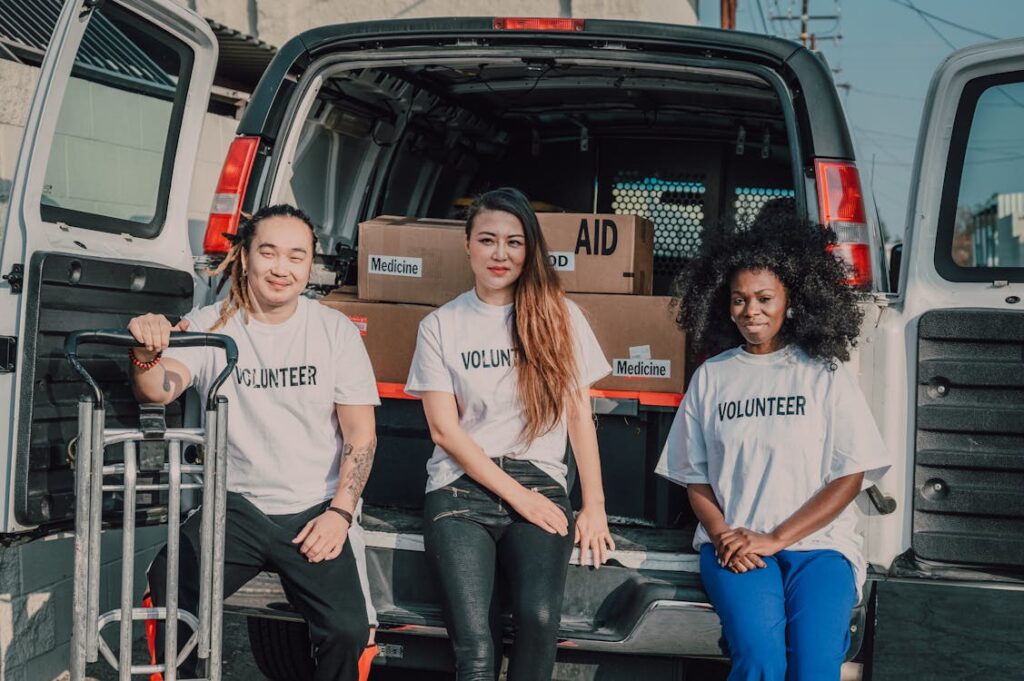
The Future of NGO Involvement in Disability Rights in India
Expanding Reach to Rural and Marginalized Communities
While NGOs have made a significant impact on disability rights in India, much of their work has been concentrated in urban areas where resources and funding are more readily available.
However, a large percentage of persons with disabilities live in rural regions where access to education, healthcare, and employment is severely limited.
The next step for NGOs is to expand their reach and bring disability rights advocacy to marginalized communities that are often overlooked.
Many rural areas lack basic assistive devices such as wheelchairs, hearing aids, and prosthetics, making it difficult for persons with disabilities to lead independent lives.
NGOs can play a major role in setting up mobile outreach programs that provide rehabilitation services, medical assessments, and assistive technology to those who need it the most.
These initiatives can be done in partnership with local healthcare providers, ensuring that individuals in remote areas receive long-term support rather than one-time assistance.
Another critical area of focus is education for children with disabilities in rural communities. Many schools in these areas do not have the infrastructure or trained teachers to support disabled students, leading to high dropout rates.
NGOs must work closely with local governments to establish inclusive education programs, provide teacher training, and distribute accessible learning materials.
Encouraging home-based learning for children with severe disabilities can also be a solution for those who cannot travel long distances to attend school.
Strengthening Economic Empowerment Programs
Financial independence is one of the most important aspects of disability rights, yet persons with disabilities continue to face barriers in securing stable employment.
While NGOs have been successful in pushing for job reservations in government jobs, the private sector still lacks strong disability inclusion policies.
Moving forward, NGOs must increase their efforts in promoting employment opportunities and skill development programs for persons with disabilities.
Vocational training programs should be expanded to include emerging industries such as digital marketing, e-commerce, and technology-based jobs that can be performed remotely.
This will allow persons with disabilities to work from home if mobility is a challenge. Partnering with corporate organizations to create inclusive hiring policies and workplace accommodations can also help bridge the employment gap.
In addition to employment, self-employment and entrepreneurship must be encouraged. Many persons with disabilities have skills in handicrafts, tailoring, agriculture, and digital services but lack the financial support to start their own businesses.
NGOs can work with microfinance institutions and government agencies to provide funding, mentorship, and business training, helping disabled individuals become self-sufficient entrepreneurs.
Enhancing Digital Accessibility and Inclusive Technology
As India moves towards a more digital economy, ensuring that persons with disabilities have equal access to technology will be crucial.
NGOs must advocate for stronger digital inclusion policies, ensuring that websites, mobile applications, and online services are designed to be accessible to all users, including those with visual, hearing, and motor impairments.
Collaborations between NGOs and tech companies can lead to the development of more affordable assistive devices, such as low-cost screen readers, smart prosthetics, and AI-driven communication tools for individuals with speech impairments.
These innovations can dramatically improve the quality of life for persons with disabilities, giving them more independence in education, employment, and daily activities.
Government e-governance platforms, banking services, and educational portals must also be made fully accessible.
NGOs should work closely with policymakers to ensure that digital services comply with international accessibility standards so that persons with disabilities can navigate these platforms without barriers.
Encouraging More Public Participation in Disability Rights
For true change to happen, disability rights must become a mainstream issue rather than being treated as a niche concern. NGOs can play a significant role in encouraging public participation by involving individuals, schools, businesses, and communities in disability advocacy efforts.
Mass awareness campaigns, disability rights workshops, and media collaborations can help change perceptions and promote a more inclusive society.
Encouraging able-bodied individuals to volunteer, assist in accessibility audits, or mentor persons with disabilities can bridge the gap between communities and create a culture of inclusion.
By making disability rights a shared responsibility, NGOs can ensure that persons with disabilities are fully integrated into every aspect of society, rather than being seen as separate or needing special treatment.
The future of disability rights in India depends on collective action, and NGOs must continue to lead the way in making this vision a reality.

Conclusion
NGOs have been at the forefront of disability rights advocacy in India, making significant contributions to policy changes, accessibility improvements, and direct support services. Their work has helped create a more inclusive society, but challenges remain, especially in rural access, employment opportunities, and digital inclusion.
The future of disability rights in India requires sustained efforts from NGOs, the government, private organizations, and society as a whole. By expanding their reach, promoting economic empowerment, strengthening digital accessibility, and encouraging public participation, NGOs can continue to drive meaningful change.
Persons with disabilities deserve not just legal protections but also the opportunity to live with dignity, independence, and equal opportunities. With the tireless efforts of NGOs and growing societal awareness, India can move closer to becoming a truly inclusive nation.



